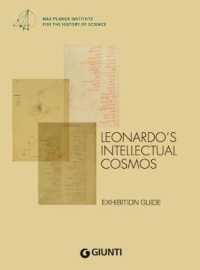Full Description
This monograph investigates for the first time words like 'thing' of maximal semantic generality across languages. Not all languages have exact equivalents of English 'thing' - in some, for instance, the nearest equivalent is an interrogative stem ('what?'). Few languages extend their 'thing' words into indefinite 'something', 'anything', 'nothing', as in English. As regards Indo-European languages, Buck (1988) points out that such words typically derive from a more abstract source than that of simple material objects. In the case of 'thing', the earliest source usually given is the Germanic word for a 'judicial assembly'. How does such a word develop the most general sense of 'thing' today? Do all languages follow this kind of pattern? These questions lead into an investigation of the concept of 'thing' in a wide range of contexts and in a wide variety of languages, involving both typological and cognitive aspects. The results have sometimes been unexpected.
Buck, C. D. 1988. A Dictionary of Selected Synonyms in the Principal Indo -European Languages. Chicago: The University of Chicago Press.







